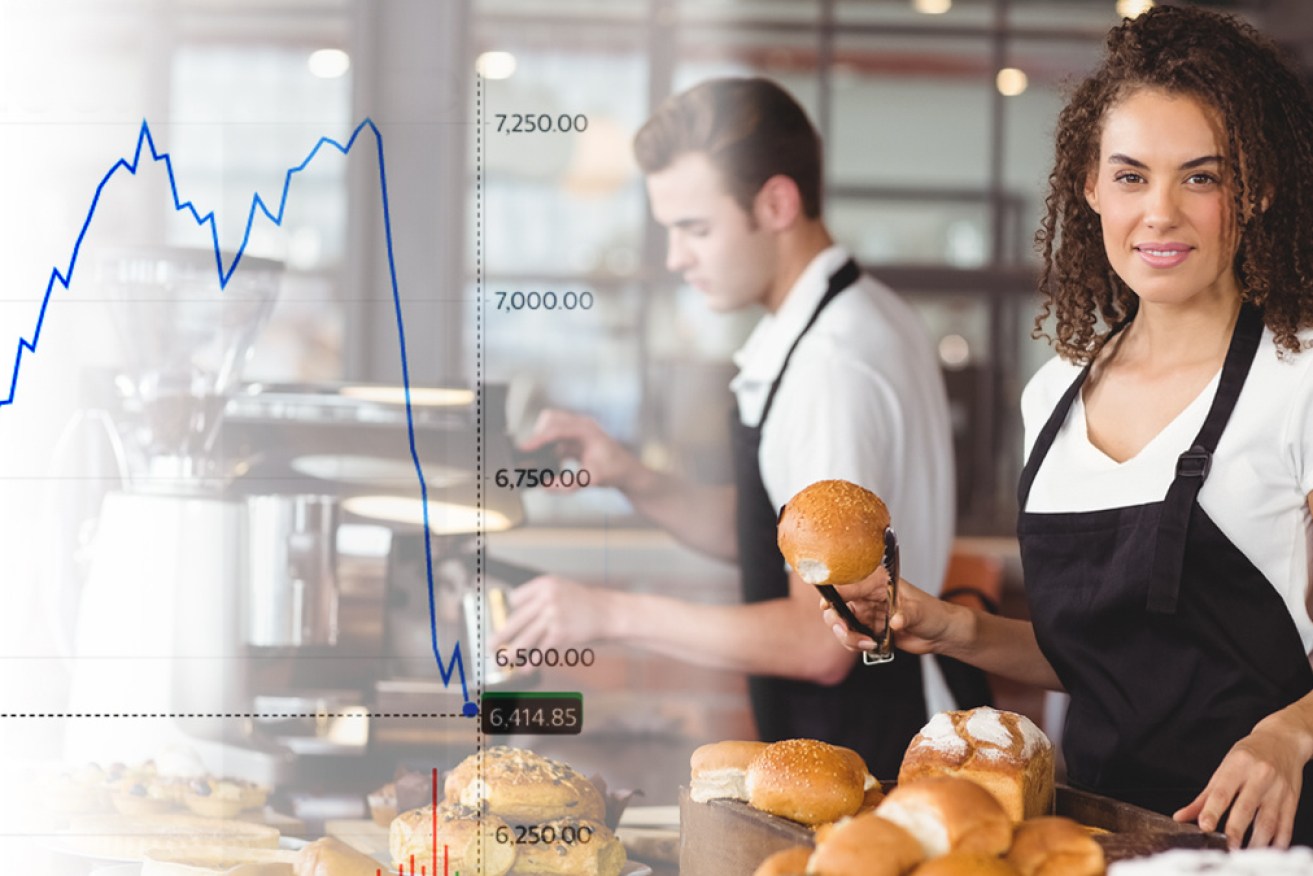Don’t panic, now could be the time to make some money in superannuation


The median balanced super fund is down far less than the stock market.
With the coronavirus headlines all screaming ‘doom and gloom’ you could be forgiven for thinking that the end of the world, or at least your super fund, is nigh.
But the truth is far from that, as superannuation funds are diversified enough to protect members from big hits to shares.
The benchmark All Ordinaries share index is down 11.5 per cent since it peaked at 7255.2 on February 20.
That’s a loss in value of $254 billion, which is no small sum.
But the effect on the average balanced superannuation fund, which has 61 to 80 per cent exposure to growth assets, is far less.
“The median growth fund lost around 3 per cent in February and so far in March has been flat,” said Mano Mohankumar, researcher with superannuation tracker Chant West.
“There’s no need to panic; superannuation is a long-term investment and growth funds are diversified,” he said.
The extent of that diversification is clear in this chart produced by regulator APRA.
 Overall equities account for about 51 per cent of superannuation investments.
Overall equities account for about 51 per cent of superannuation investments.
They account for 55 per cent of for-profit retail funds, 53 per cent of industry funds, and a fraction less of corporate and public sector funds.
The power of diversification is that when some assets fall in price, others rise and the inverse relationship between shares and bonds is a good example.
The average super fund has about 9.5 per cent of assets in fixed interest, or bonds, which moved in the opposite direction to the stockmarket.
“Fixed interest had a strong month,” Mr Mohankumar said.
That’s because bond yields fell to record lows over February-March, meaning investors were paying big prices for low yields, which pushed up bond prices.

Commonwealth 10-year bonds have fallen to a record low yield of 0.72 per cent.
Other assets like cash, property and unlisted infrastructure held by super funds give extra protection against sharemarket falls.
The not-for-profit funds in the industry, public sector and corporate categories have exposures of between 5 and 9 per cent in unlisted infrastructure, which is valued independently from sharemarkets.
That gives extra protection against a collapse in share prices.
The retail funds, however, only have 2 per cent in infrastructure and much of this is in listed products that tend to move with the overall sharemarket.
Keep your head
Super fund members need to remember one thing: “There is always volatility in markets but the last thing we need is for members to panic,” said David Knox, partner with superannuation consultancy Mercer.
“The less informed tend to sell into a falling market, losing money they can’t get back again.”
Taking stock

Take advantage of lower prices, says Stevie-Jade Turner.
A useful thing to do when there has been a market shakeout is to take stock.
“Everyone has different risk tolerances so review your situation and get advice to help the process,” said Stevie-Jade Turner, senior adviser with Tribeca Financial.
One smart option to take advantage of the slump “could be to increase your exposure to international and Australian shares”.
“You need to consider how long you will be in the market for,” Ms Turner said.
“If you are young and have 30 to 40 years of work ahead of you, there is time to recover from volatility.
“If you are older and likely to be there for say 10 years, you might be a bit more cautious and choose an allocation of say 50 per cent equities, whereas if you are younger it could be 70 per cent,” Ms Turner said.
Depending on your super fund, you can choose specific allocations to local or international equities and other asset types, or simply choose a more aggressive option that has a higher exposure to market assets.
If you do choose to change your allocation and/or put extra cash into the market, there is no need to act hastily.

Term deposits are tanking
“Personally I prefer to stagger investments over say three to six months as it reduces the risk,” Ms Turner said.
Mr Knox says super returns are likely to be lower for longer after the coronavirus scare.
“If returns are a bit lower in the years ahead than what we’ve had for the last 20 years then you might want to contribute more [through salary sacrifice] than you have in the past to get the same balance to retire on.”
With cash and term deposit rates at record lows, surviving in retirement is getting harder.
“Putting all your super in cash when you retire is not a wise move as you will have 20 years or more to live,” Mr Knox said.
“You still need a spread of assets so you can generate dividends and capital growth.”
An adviser can help you determine the mix that is right for you.
The New Daily is owned by Industry Super Holdings
The information contained in this article is general in nature and does not constitute financial advice.








